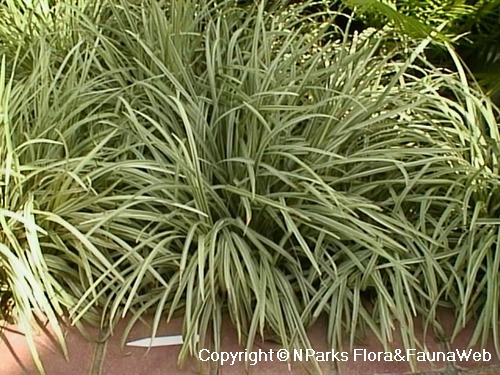
Back
Ophiopogon jaburan 'Vittatus'
| Family Name: | Asparagaceae |
| Synonyms: | Ophiopogon jaburan 'Javanensis', Ophiopogon jaburan 'Variegatus', Ophiopogon jaburan 'Argenteovariegatus' |
| Common Name: | Variegated Mondo Grass, Jaburan Lilyturf, Variegated Lilyturf, Aztec Grass, White Lilyturf, 沿阶草 |
Name
Classifications and Characteristics
| Plant Division | Angiosperms (Flowering Seed Plants) (Monocotyledon) |
|---|---|
| Plant Growth Form | Creeper, Herbaceous Plant |
| Lifespan (in Singapore) | Perennial |
| Mode of Nutrition | Autotrophic |
| Plant Shape | Compact |
| Maximum Height | 0.3 m to 0.6 m |
| Maximum Plant Spread / Crown Width | 0.3 m |
Description and Ethnobotany
| Others - Plant Morphology | Growth Form: Evergreen, grass-like perennial that forms dense clumps and has rhizomes (horizontal stems that produce new shoots). Foliage: Leaves are linear with an entire leaf margin and a pointed apex. Leaves are not stiff with some bending over and some erect. Older leaves may be more green and less variegated than younger foliage. Flowers: Flowers are bell-shaped. They are arranged in inflorescences known as racemes in which one main axis bears several stalked flowers that are directly connected to it. Fruits: Fruits are oblong to ellipsoid berries (1.3 cm long). Landscaping: This cultivar makes an excellent, long-lasting groundcover or edging. The variegated leaves would also be good for colour accent beds, rock gardens or decorative plant arrangements. It can tolerate shady areas that are prone to short periods of dryness. The lighter colour of the leaves would also make shady areas look less dark. This species is also suitable for high rise balconies where it may experience high winds, heat, lighting that varies from full sun to full shade, and drought due to wind and heat exposure. It produces excellent foliage in the tropical lowlands, but usually does not flower. Flowering occurs in tropical highlands and temperate climates. Cultivation: This cultivar has a moderate growth rate and requires little maintenance. Plant in well-drained, fertile and slightly acidic soil containing organic matter. For groundcovers, plant small clumps 0.2 m apart to cover the area quickly. Water the plants regularly for best growth, but established plants are tolerant of short periods of drought. Feed every month with a 15-15-15 NPK liquid fertilizer. It occasionally produces green side shoots that should be quickly removed, because they will outcompete the variegated ones. Young foliage may be attacked by slugs. Plants grown on a balcony should be rotated by a quarter turn every week for balanced growth. Propagation: Propagate by dividing the clumps of plants. Etymology: The genus name "Ophiopogon" means snake's beard. It is derived from 2 Greek words, "ophis" meaning snake and "pogon" meaning beard. This name is translated from the Japanese name ("riuno fige"). |
|---|
Landscaping Features
| Desirable Plant Features | Ornamental Foliage |
|---|---|
| Landscape Uses | Flowerbed / Border, General, Container Planting |
Plant Care and Propagation
| Light Preference | Semi-Shade, Full Sun |
|---|---|
| Water Preference | Moderate Water |
| Plant Growth Rate | Moderate |
| Rootzone Tolerance | Fertile Loamy Soils, Well-Drained Soils |
| Maintenance Requirements | Low |
| Propagation Method | Division |
| Planting Distance | 0 |
Foliar
| Mature Foliage Colour(s) | Cream / Off-White, Green, White |
|---|---|
| Mature Foliage Texture(s) | Smooth |
| Foliar Type | Simple / Unifoliate |
| Foliar Arrangement Along Stem | Rosulate / Rosette |
| Foliar Shape(s) | Non-Palm Foliage (Linear) |
| Foliar Venation | Parallel |
| Foliar Margin | Entire |
| Foliar Apex - Tip | Acute |
| Foliar Base | Truncate / Square |
| Typical Foliar Area | Notophyll ( 20.25cm2 - 45 cm2 ) |
| Leaf Area Index (LAI) for Green Plot Ratio | 3.5 (Shrub & Groundcover - Monocot) |
Non - Foliar and Storage
| Stem Type & Modification | Acaulescent |
|---|---|
| Root Type | Underground (Fibrous Root) |
| Specialised Storage Organ(s) | Underground (Rhizome) |
Floral (Angiosperm)
| Flower Colour(s) | White |
|---|---|
| Flower Symmetry | Radial |
| Individual Flower Shape | Campaulate / Bell-shaped |
| Inflorescence Type | Raceme |
Fruit, Seed and Spore
| Mature Fruit Colour(s) | Blue, Purple |
|---|---|
| Fruit Classification | Simple Fruit |
| Fruit Type | Fleshy Fruit , Berry |
Image Repository
Others
| Master ID | 985 |
|---|---|
| Species ID | 2279 |
| Flora Disclaimer | The information in this website has been compiled from reliable sources, such as reference works on medicinal plants. It is not a substitute for medical advice or treatment and NParks does not purport to provide any medical advice. Readers should always consult his/her physician before using or consuming a plant for medicinal purposes. |

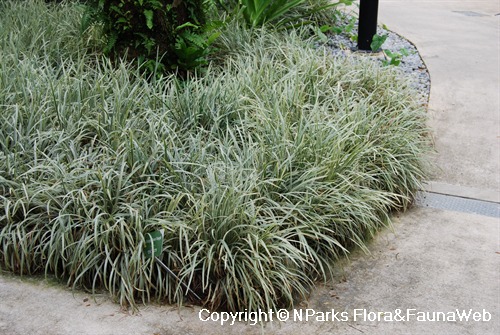
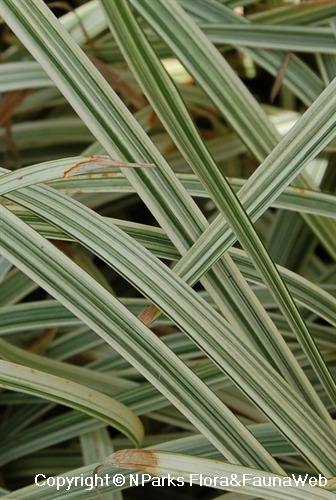
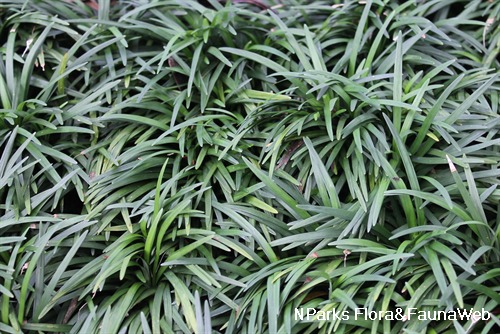
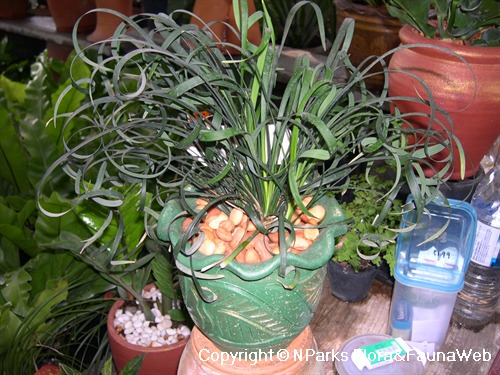
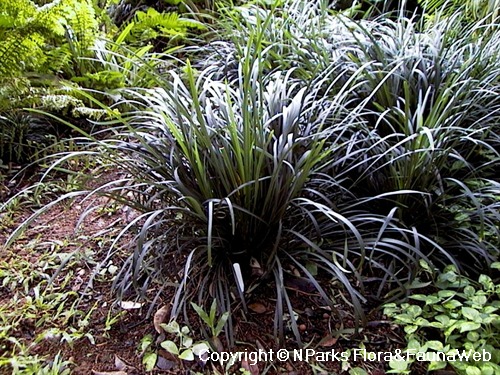
.jpg)